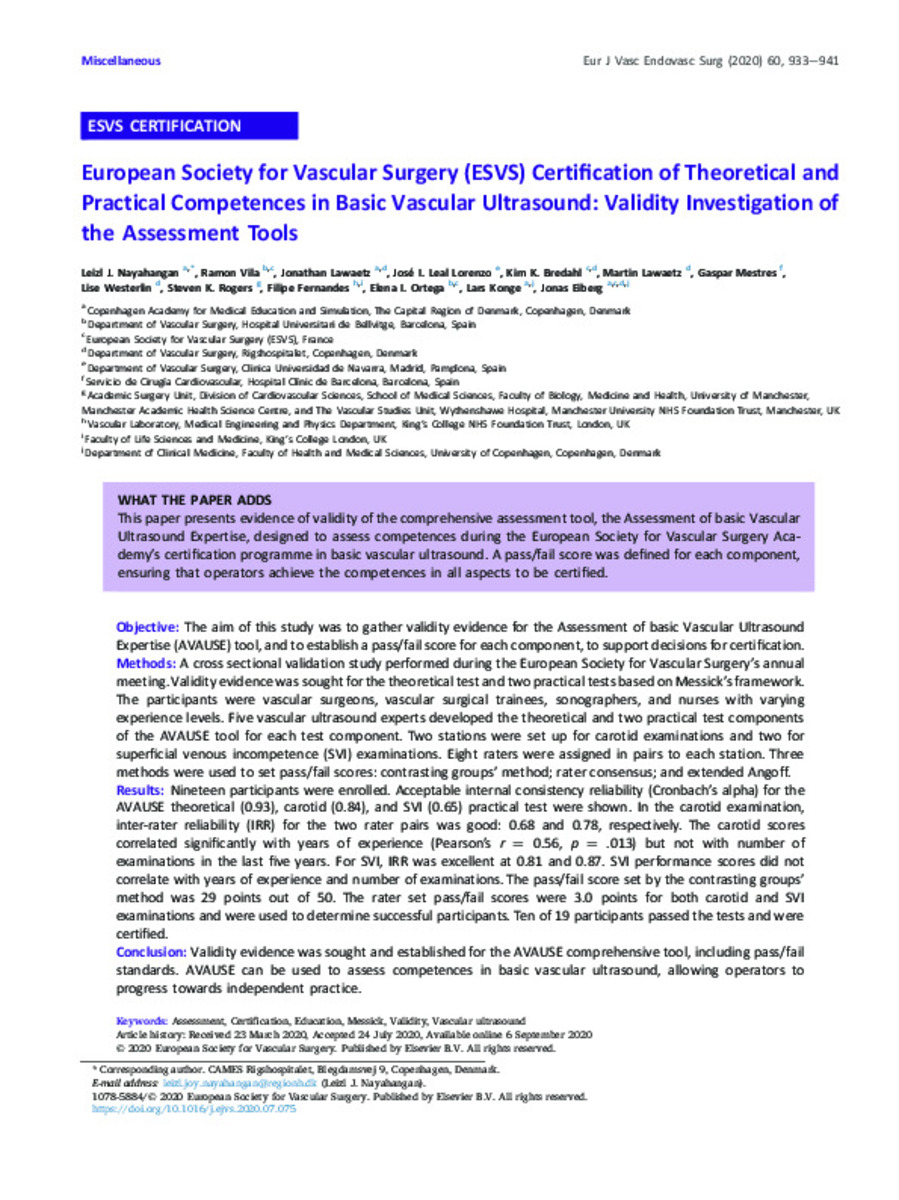European Society for Vascular Surgery (ESVS) Certification of Theoretical and Practical Competences in Basic Vascular Ultrasound: Validity Investigation of the Assessment Tools
Keywords:
Materias Investigacion::Ciencias de la Salud::Cirugía
Assessment
Certification
Education
Messick
Validity
Vascular ultrasound
Citation:
Nayahangan, L.J. (Leizl J.); Vila, R. (Ramon); Lawaetz, J. (Jonathan); et al. "European Society for Vascular Surgery (ESVS) Certification of Theoretical and Practical Competences in Basic Vascular Ultrasound: Validity Investigation of the Assessment Tools". European Journal of Vascular and Endovascular Surgery. 60, 2020, 933 - 941
Statistics and impact
0 citas en

Items in Dadun are protected by copyright, with all rights reserved, unless otherwise indicated.







